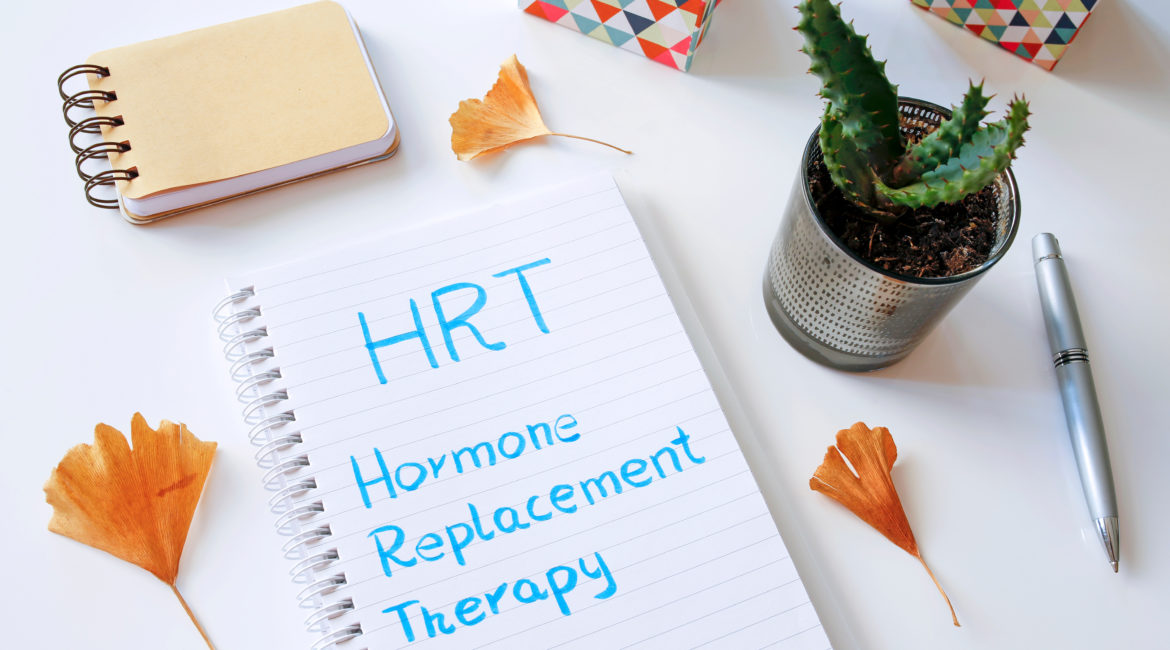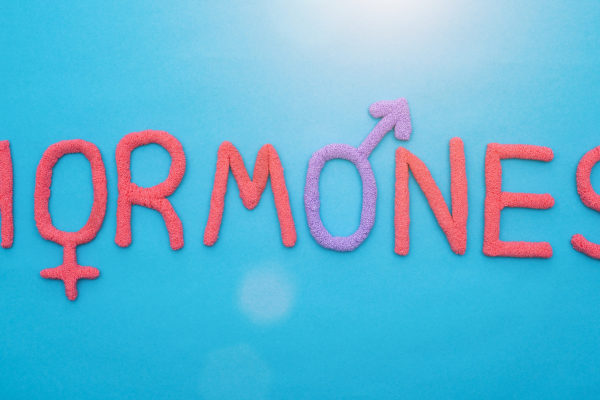Getting older is not a fun experience. Your joints begin to hurt, you begin to notice a forgetfulness that never occurred before, you may see your libido decrease substantially, fat suddenly appears in your midsection despite sticking to your normal diet, and it becomes increasingly difficult to put on lean muscle mass. Some men even find that they begin feeling depressed and having a loss of their sense of self-worth for no reason.
Each of these symptoms can occur as a result of specific hormones that are necessary for men to maintain their “manliness” beginning to decline. These are often thought of as a regular part of getting older, but there are many parts of our society and current environment that can exacerbate the problem before and beyond just aging.
Thanks to the miracle of science, men no longer have to allow themselves to be slowed down or to suffer the effects of hormone imbalances that can lead some to feel like a shell of their former selves. There are several types of hormone replacement therapy that have entered the market and found great success over the past decade. But along with success comes copycats, and while genuine hormone replacement therapies have offered great help for many, there are other cheap over-the-counter pills and sprays that can be very expensive but cause more harm than good.
If you are a man who knows that something is missing from your life and can feel that you are slowing down far faster than you should, we will use this article to help you understand why that may be, what may cause it, what you can do about it and what charlatan “treatments” you should avoid.
Summary
Hormones are used to send signals to various parts of our body so that they may work properly, but there are a large number of issues that can disrupt those processes and lead to hormone imbalances. In men, the most common hormone disruption is low testosterone, especially in men who live under a great deal of stress or have other environmental or dietary issues. Some men seek out Testosterone Replacement Therapy (TRT) or Human Growth Hormone (HGH), but TRT is a typically more effective therapy for low testosterone.
The Signs and Symptoms of Hormone Imbalance
Your entire body is controlled by hormones, chemical signals made in your endocrine glands (pituitary, pineal, thymus, thyroid, adrenal, pancreas & testes), and excreted into your bloodstream to tell your body to perform certain functions. The hypothalamus in your brain controls many things, including the release of hormones from your pituitary gland.
We’re not trying to put you through another biology class, but it is important that you understand just how important hormones are to your bodily functions, and how many chances there are for something to be disrupted somewhere along the chain to create an imbalance in the hormones of your body.
For men, the hormones that control what we see as “being a man” are testosterone and Human Growth Hormone (HGH). A disruption in either of these can happen due to many different causes, and they have many similar symptoms. The symptoms of low testosterone levels in a man are:
- Low sex drive (libido)
- Erectile dysfunction (ED)
- Fatigue and poor energy levels
- Decreased muscle mass/difficulty adding lean muscle
- Body and facial hair loss
- Difficulty concentrating
- Memory loss/forgetfulness
- Depression
- Irritability
- Low sense of well-being
Although an HGH disruption is very different from low testosterone, the symptoms can be similar:
- Higher body fat levels, especially around the waist
- Anxiety and depression
- Decreased sexual function and interest
- Fatigue
- Feelings of being isolated from other people
- Greater sensitivity to heat and cold
- Less lean muscle
- Less strength, stamina, and ability to exercise without taking rest
- Reduced bone density and a tendency to have more bone fractures
- Changes in the makeup of the blood cholesterol
- Men with HGH deficiency have higher than normal low-density lipoproteins in comparison to high-density lipoprotein and higher triglycerides
What Can Cause a Hormone Imbalance?
Stress causes your body to release cortisol, and keeping that hormone elevated for too long of a period can result in drastic effects on your body, even to the point that it begins to lower your testosterone production significantly. Cortisol in small doses is perfectly normal to the human body but can be so harmful if your stress levels are elevated for too long that one medical professional said that the signature injury for soldiers from the War on Terror was Low T, not PTSD.
Most men only think of stress in terms of being overworked, but there is a wide assortment of stressors in today’s society that affects many of us that we may not even recognize. The pandemic and lockdowns have increased the stress levels to the breaking point in many people. Some of these changes have caused strains in marriages and relationships, which adds another level of stress to your life and more cortisol to be produced by your body.
On top of mental stress, a poor or incomplete diet can lead to a reduction in testosterone levels. Too little sleep and/or too much caffeine, too much sugar or junk food, not enough exercise and even some plastics that foods are packaged in have been found to leech chemicals into their products that can disrupt the human hormone system.
If any of these stressors is something that has been a large part of your life, and you have noticed that you are experiencing one or more of the symptoms listed above, keep reading to find out what steps you can take towards reversing this situation and getting your life back on track.
Human Growth Hormone imbalances can come through either genetic, birth, or medical issues. These imbalances can be caused by a tumor on the pituitary gland or hypothalamus. The damage may also be caused by surgery or radiation used to treat a tumor, or by anything that can disrupt the blood flow to either of those glands.
HGH is also approved for treating adults who have undergone treatment for HIV or AIDS, as those treatments may cause an irregular distribution of body fat. The FDA has also approved HGH treatment for various medical issues, such as Turner’s Syndrome, Prader Willi Syndrome, chronic kidney disease, natural HGH deficiency or insufficiency, short bowel syndrome, or muscle wasting associated with HIV or AIDS.
How Can Men Treat a Hormone Imbalance?
In the past, many men would just chalk these symptoms up to the normal process of aging and, being men, would just choose to ignore it. In fact, a recent study found that nearly 40% of men may suffer from hypogonadism (a lower than normal production of testosterone), and of that number as few as 12% actually seek treatment.
Unfortunately, this is not an issue that men should simply ignore and hope that it will go away, or choose not to do anything because they feel it is just a normal part of life. If you have children, you don’t want to spend your years exhausted and devoid of energy when you should be practicing sports with them, helping them learn, and enjoying those childhood years together. If you are so tired when you get home from work that you can’t muster the energy, you risk losing those precious years and memories.
Additionally, if you are happily married, in a relationship, or seeking one, the lowered libido that comes as a result of lower testosterone can cause irreparable damage to both your relationship and your own psyche. No man wants to feel as if he can’t be an interactive father with his children or consummate partner to his significant other, and the symptoms of low testosterone run the risk of creating both of those situations.
We no longer live in the 1500s when Ponce de Leon had to circumnavigate the globe in search of the fountain of youth. Rather than seeking a mystical elixir that flows from a magical fountain in a far-off land. There are simple, easy, and effective medical treatments available to nearly anyone suffering from these symptoms. We will help you find the right medical practitioner to get you back on track safely, quickly, and easily.
But while there are those safe & easy treatments, there are also plenty of charlatans and fly-by-night medical companies who promise treatment in an over-the-counter pill or spray. Be very aware of anything that you can order off the internet without a prescription or an evaluation that includes bloodwork. The treatments listed below have been developed and approved for these specific issues and symptoms, and need to be regulated. Anything that you can simply order offline could potentially cause you far more harm than good.
Testosterone Replacement Therapy (TRT)
Testosterone Replacement Therapy is the only therapy that has been approved for low testosterone and is the only treatment that you should be taking to treat the issue. TRT can come in many forms, and some are more effective than others. There are pills, patches, sprays, gels, sublingual dissolving tablets, and injections, but the injections are by far the best option for most.
The pills must be swallowed, which means they are metabolized by your liver and may lose some efficacy in the process of digestion. The patches, sprays, and gels may provide an uneven and unbalanced distribution, especially if you are hairy or the patches or gel may rub or fall off before they are completely absorbed.
Some may fear the needle required for injection or worry that injecting TRT directly would be the same thing as taking steroids, but neither of these issues is something that should be concerning. Firstly, anabolic steroids and Testosterone Replacement Therapy are two very different things, as anabolic steroids are often taken in far higher doses than TRT, and use various other chemicals in the form of “stacks” meant solely to enhance athletic performance.
Testosterone Replacement Therapy is simply testosterone, prescribed by a medical professional in an amount and frequency as directed according to your testosterone deficiency. While there may be a stigma associated with participating in the therapy because of an inherent bias that you may have, there are tens of millions of men around the world who are extremely happy that they were able to get past those stigmas and undergo the treatment that they needed.
If the thought of receiving a shot every one to two weeks is something that worries you, we can put your mind at ease over that issue as well. The needle used for TRT is typically a 21 to 25 gauge needle, meaning that it is on the smaller end of the spectrum as far as needle sizes are concerned. The medical professional who prescribes your therapy will walk you through the injection process, which is quite simple.
As the therapy is meant to be an Intramuscular (IM) injection, it has to be injected into a large muscle group to be effective. The most popular locations for self-administration are the outer thigh or the buttocks, both of which are done in areas with fewer nerves and blood vessels so they do not hurt as much as some may fear.
A diabetic patient has to self-administer their medication far more often than Testosterone Replacement Therapy dictates, and if you are suffering from the symptoms listed above, the solution is well worth the price of a small weekly shot.
Human Growth Hormone (HGH) Replacement Therapy
Human Growth Hormone replacement has become very popular of late, but the studies have shown that at best it may not provide any value to healthy adult males, and at worst it may cause some side effects.
Some of the side effect warnings are:
- Nerve, muscle, or joint pain
- Swelling due to fluid in the joint’s tissues
- Carpal tunnel syndrome
- Numbness and tingling of the skin
- High cholesterol
There are legitimate, medically-approved uses for HGH that are listed above, and for those medical conditions the treatment can be quite helpful. For healthy adult males, however, if you are feeling the symptoms that are associated with low testosterone, we advise that you consult with one of our medical professionals to evaluate your levels and look into the potential of starting Testosterone Replacement Therapy.
How Can Men Get Testosterone Replacement Therapy?
There is no single panacea or fountain of youth to counteract the effects of aging or hormone imbalances. Every medical treatment has potential side effects, but Testosterone Replacement Therapy has been used by many men and in a substantial number of medical studies to treat a wide range of symptoms and issues related to testosterone.
If you are a man who read the symptoms listed at the beginning of this article and recognized one or more that have been affecting you, our team at Prolong Labs can help you find the treatment to get you back to your former self and regain the lust for life that you enjoyed in your younger years.
Our team at Prolong Labs will help connect you with the right anti-aging clinic and medical professionals to get you on the road to increasing your testosterone levels, machismo, and enjoyment of your life, at no extra cost to you.
Give us a call today so we can help you put these symptoms behind you and be the man who you know that you are!






